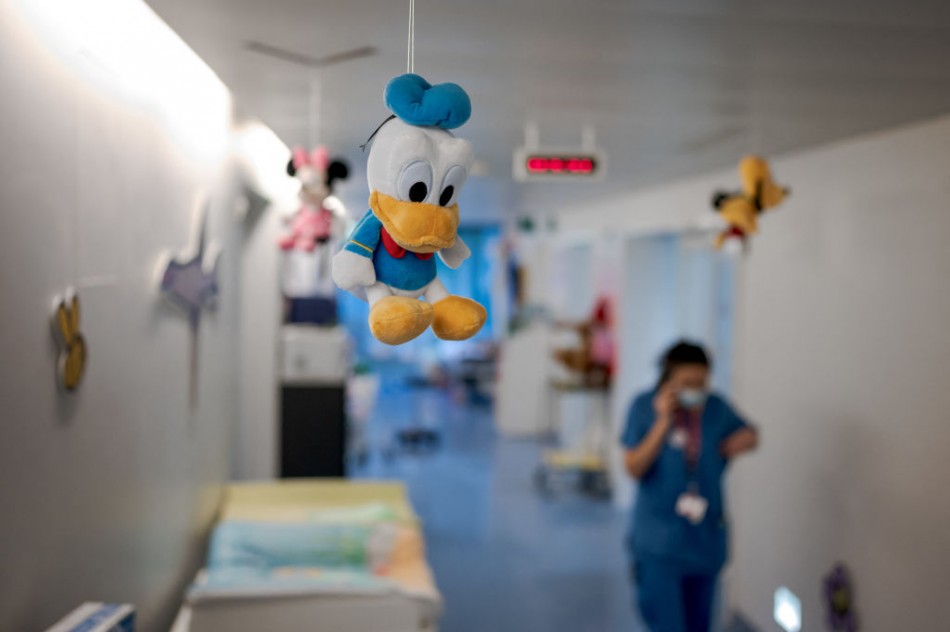Toddler Born With Alternating Hemiplegia of Childhood Needs $9-Million Treatment

At nine months old, doctors diagnosed Henry Saladino, a two-year-old from Boston, with a rare condition called alternating hemiplegia of childhood (AHC). His parents, Mary and Anthony Saladino, were told that they would need at least $9 million for the development of a treatment.
In an exclusive on Daily Mail, Henry's parents said that they are "always on edge, every minute of every day" while their baby suffers from the symptoms of AHC, such as seizures, breathing problems, and paralysis. Only 1,000 children all over the world have this rare disorder.
Since Henry's diagnosis, the family has been in and out of the hospital, but a promising treatment has been in development for children with AHC. Only, this treatment could cost millions in dollars to be fully viable after studies and tests during the research phase.
Read Also: Shauna Rae: 22-Year-old New TV Star Looks 8 Due To Rare Condition
What is Alternating Hemiplegia of Childhood?
According to the Massachusetts General Hospital, alternating hemiplegia of childhood is a brain disorder that leads to attacks of paralysis, at varying degrees, in one side of the body. Kids with this condition usually develop abnormal body movements, developmental delays, fluctuating mental status, and "true seizures." The latter could be characterized by tonic stiffening of the limbs on one side of the body.
In Henry's case, the symptoms could occur at any time of the day without any reason. He could be having a good and regular day, feeling excitement, exerting too much physical effort, and then stiffening up. He could be triggered by light, sound, or temperature changes and then suffer from a seizure.
With no easily accessible treatments, the Salandino family is desperate and devastated. For now, they manage to keep a constant eye on Henry so that they can catch him in a state of paralysis and do calming or soothing techniques in a dark and quiet room. However, as Henry grows older, his symptoms keep changing.
"AHC continues to keep us on our toes and remind us that as long as we have no treatment or cure, Henry is not safe," Mary said.
The cause of AHC remains largely unknown to the experts, but Dr. Richard Smith of the Boston Children's Hospital Division of Genetics and Genomics said that it could be linked to the ATP1A3 gene, a very important gene in the brain. ATP1A3 triggers the brain's bioactivities that impact the functions of the cells and activation of the neurons.
In patients with AHC, the ATP1A3 gene does not appear to be "turned on" at the 20th week of the fetus' gestation. Thus, Smith and his colleagues are finding more answers with their research to confirm their assumptions that ATP1A3 mutations may disrupt the balance in the brain and contribute to ATP1A3-related conditions like epilepsy.
Other Babies With AHC
The Silver family in Iowa understands what the Salandinos are going through. Their daughter, Alice, 10 months old, has just been diagnosed with AHC, and they are also trying to raise money for the research and treatment. Tim Silver, Alice's father, believes that they are close to having a cure, but more funding could be available if there were awareness about AHC.
Aubrey Breckon's family is also doing a fundraiser after her diagnosis at three months old. She's a Canadian baby with AHC with a more pathogenic variant that has been linked to a more severe prognosis. They are trying to network to raise awareness and help with cutting-edge research for the cure.
Related Article: Former Conjoined Twin Grows up To Become an Influencer Who 'Channels' Her Sister
© 2024 ParentHerald.com All rights reserved. Do not reproduce without permission.
